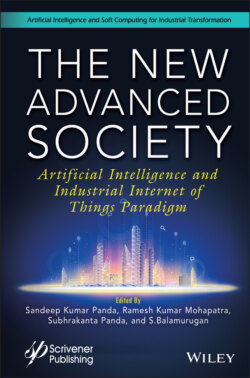Читать книгу The New Advanced Society - Группа авторов - Страница 16
1.1 Introduction
ОглавлениеOn December 31, 2019, the World Health Organization (WHO) contacted China about media reports of a cluster of viral pneumonia in Wuhan, later attributed to a coronavirus disease by the name, SARS-CoV-2 and now referred to as COVID-19 [1]. The WHO proclaimed the virus to be an international public health emergency (PHEIC), by January 30, 2020, a month later, the highest alert that the organization would sound. The pandemic was well underway in thirty more days and had spread to more than 70 countries and territories on six continents, and about 90,000 confirmed COVID-19 cases were registered worldwide [2].
The purpose of this analysis is to minimize this opportunity by understanding what went wrong with the coronavirus pandemic’s early national and international responses, as long as a roadmap for improved preparedness and implementation by countries and the multilateral framework for potential surfs of the current pandemic, and when the subsequent pandemic menace will inexorably occur. Before it becomes a tragedy, this study aims to avoid the next global health challenge. The pandemic of COVID-19 by far could still develop in unpredictable ways. It is already clear to detect, contain and quickly respond to and prevent the blowout of possibly unsafe new infectious diseases, preparation and early execution are important. The capability to marshal early action rest on the preparation for the worst-case situation of a severe pandemic by nations and global organizations and the readiness to execute on that preparedness.
In order to counter the pandemic, the leadership areas considering the healthcare system and the police management system played a very important role. This research has explored the digital world that, including risk and crime, has transformed almost every aspect of our lives. Again, the focus of this research was on economic activities that have become vulnerable to society. Most importantly the feelings, emotions, and sentiments of the people are predominant. Thus, the study describes Emotional Intelligence (EI) to get rid of depression as one of the remedial measures to manage the situation more self-confidently, enjoy the work passionately and to carry out positive boldness. The study indicated a very challenging task faced by the government to tackle the unemployed migrant laborers and measures to provide employability in due course of time is discussed. Thereafter, the biggest challenging theme deliberated is the digital transformation of educational institutions that paves the way towards technology which is the enabler. Through technology the users’ (students and teachers) experience has become intuitive and innovative. Human Development Index (HDI) has become the priority of every educational institutions. Lastly, ‘ikigai’ which means ‘reasons for being’ is discussed so that during the closure of schools and colleges, students and teachers will remain happy, will bring fulfilment, and live a longer life.
